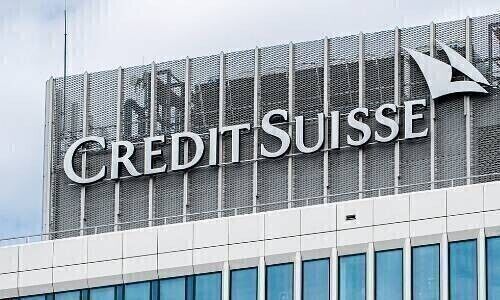Credit Suisse concluded an investigation into South American accounts held by its predecessor bank SKA during the 1930s and World War II. There was no evidence to support the Simon Wiesenthal Center's allegations about assets that may have come from Holocaust victims, it said.
A two-year investigation commissioned by Credit Suisse to research historical questions raised by the Simon Wiesenthal Center (SWC) was concluded, with investigators finding no evidence to support the SWC’s allegations that 12,000 names on an Argentine list had accounts at Schweizerische Kreditanstalt (SKA), Credit Suisse’s predecessor bank, during the Nazi era, according to a statement from Credit Suisse Tuesday evening.
Los Angeles-based SWC, named after Austrian Nazi hunter Simon Wiesenthal, suspected these SKA accounts might have included assets of Holocaust victims. The investigation also resolved questions about eight accounts that had been long since closed.
Credit Suisse hired Alix Partners to investigate the SWC's allegations the 12,000 were members of the Unión Alemana de Gremios (UAG), who had connections to Nazi Germany. Of these, many were said to have maintained accounts connected with the SKA.
Only eight people identified from the list had accounts with SKA in the period from 1933 to 1945, and of those, seven had been closed by 1937, it said.
In addition, 70 people were found, some of whom had accounts during the SKA years, in some cases decades, after the end of World War II, but this is not considered relevant to the allegations, according to the statement.
The bank said the investigation fundamentally confirmed research that was published in conjunction with a global settlement in 1999 which resulted in a binding resolution for Swiss banks related to World War II claims.
Combing the Archives
Credit Suisse said despite the 1999 agreement to which it and the SWC are bound, the bank «voluntarily engaged» Alix Partners, a forensic investigative firm, to investigate the SWC's claims. In addition to the UAG list compiled in 1941, 50 Alix investigators looked into Credit Suisse archives for members of Argentinas Nazi Party compiled by the US government in 1946, reviewing nearly half a million documents.
Credit Suisse said the investigation «identified no evidence to support the SWC’s claims that 'many' of the UAG members or Argentine Nazis on the lists had accounts with SKA during the Nazi period, nor did they uncover evidence to suggest that any of the accounts identified during the period contained assets from Holocaust victims.»
Criticism From the US
While Credit Suisse might consider the matter closed, others do not.
The investigation has been criticized in the United States in both its process and resolution, with the US Senate Budget Committee accusing the bank of obstructing the investigation. In particular, the dismissal of ombudsman Neil Barofsky during the ongoing investigation, as the «Financial Times» (behind paywall) reported.
US Senator Chuck Grassley said the Credit Suisse investigation was «unnecessarily rigid and narrow» in its scope, and refused to follow new leads uncovered throughout the investigation.
Accounts Still Open
According to the «FT» story, the Senate Budget Committees' review found that at least 14 accounts remained open into the 21st century, among which were senior SS commanders, a Nazi scientist, and one officer sentenced for war crimes at Nuremberg whose account remained open until 2002.
Moreover, the «removal of an independent ombudsperson and insistence on redacting portions of his report as well as its initial refusal to pursue leads on accounts that may be associated with Nazi ratlines is no way to conduct a thorough and complete investigation,» Grassley said.
Credit Suisse for its part said it is fully cooperating with the Senate Budget Committee but said it contained «numerous factual errors, misleading and gratuitous statements, and unsupported allegations that are based on an incomplete understanding of the facts,» according to the Financial Times.



































